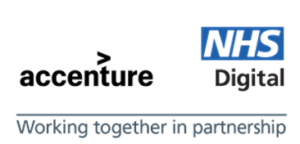

Local Administrator (LA) bulletin – 29 January 2021
Please note this information is correct at the time of publishing
Multi Factor Authentication (MFA)
Now we have fully migrated all user accounts to Exchange Online (EXO), MFA is available as an option for all organisations via a policy amendment. You will be familiar with MFA and the benefits of this security feature as part of your Local Administrator (LA) profile.
This will allow your organisation to choose whether to apply this enhanced security feature to your user base and is available as part of the base E3R licence.
You and your organisation are now responsible for allocating users who require MFA. You will need to create a policy and add those specific users, ensuring the MFA toggle is “On”. Certain users will need this enhancement added to their profile when accessing for example, a secure dashboard or to respond to cyber alerts.
The policy guidance on the support site has been enhanced to advise this feature is now available, the MFA guidance has not changed and is available on the NHSmail support pages.
Unsupported Outlook versions
As communicated in a previous LA bulletin, Outlook 2010, including all service packs, reached end of life on October 13, 2020.
What does this mean?
Organisations using Outlook 2010 (or earlier) are now in an unsupported state, therefore, Microsoft will no longer provide:
- Technical support for issues
- Bug fixes for issues that are discovered
- Security fixes for vulnerabilities that are discovered
While connections won’t be actively blocked, it is important to note that should issues arise as a result of the Outlook 2010 client (capacity, infrastructure or security) Microsoft reserve the right to block connections with minimal warning.
Microsoft will no longer be testing Outlook 2010 against any new product releases – meaning functionality could be lost at any time. Additional information can be found on the Microsoft website.
The NHSmail Helpdesk will not remediate tickets caused by legacy or unsupported platforms.
What action do we need to take?
It is strongly advised that organisations expedite the process of moving off Outlook 2010 or, mobilise a local programme immediately, in order to minimise potential disruption.
There are two main options available for organisations to consider:
- Organisations can utilise the National O365 (N365) deal to procure Apps for Enterprise licenses (previously known as Pro Plus) and onboard them to the central NHSmail tenant. Further guidance on how to onboard licences can be found on the NHSmail support pages
- Organisations can procure Office 2013, 2016 or 2019 directly through a Microsoft reseller (please consider end of life support dates for other Office suites when making your upgrade decision). A full list of supported platforms can be found on the NHSmail support pages
What do we recommend?
Organisation’s with a heavy reliance on legacy Outlook versions should mobilise one of the options outlined above as soon as possible.
Webmail
All users will have recently passed through the NHSmail Refresh providing them with access to the latest web-based Microsoft mail offering – Outlook on the Web. This can be used as a temporary solution to mitigate potential issues when pursuing a permanent Outlook desktop upgrade. Users can access via the NHSmail Portal or directly at portal.office.com.
Outlook on the web (OWA) relies on certain minimum browser versions to allow full functionality and performance. The supported versions are shown below:
Windows:
- Microsoft Edge, Internet Explorer 11 (with latest update), latest version of Mozilla Firefox, or latest version of Google Chrome
- Mac OS X: Apple Safari 10+ or latest version of Google Chrome
Mobile
Users can also access their NHSmail account via a mobile device running a supported Operating System (see below):
- A phone or tablet with Android 5.0 or later
- An iPhone, iPad, or iPod touch with iOS 10.0 or later
Please visit how to find your browser version on the NHSmail support pages for further guidance.
Thank you for your cooperation and if you have any queries please contact feedback@nhs.net.
Secure large file transfer web form now live
The Egress large file transfer web form is now available for all NHSmail users to send large files securely.
Users can login to the web form with their NHSmail account credentials and securely send large files, up to a maximum combined file size of 5GB.
This can be used to send to external recipients or to other NHSmail users.
- To access the web form, go to: https://lft.nhs.net/
- For further information please visit the Egress large file transfer support page and the updated NHSmail Encryption Guide
Introducing a video conferencing solution to NHSmail
This year during quarter one, we will introduce a central, no cost Cloud Video Interoperability (CVI) capability to the NHSmail platform.
This cloud-based solution will provide the ability to connect video conferencing equipment (that support SIP and H.323) with Microsoft Teams.
This will allow a more seamless user experience with organisations able to maximise the use of video conferencing devices they have previously invested in.
Further information on how organisations can access this technology will be provided in the coming weeks and there is no action required at this time.
Where can I get support?
If your query remains unanswered, please contact your local IT department or the NHSmail helpdesk helpdesk@nhs.net for support.
Best wishes,
The NHSmail Team
Contacts for further help
NHSmail helpdesk:
0333 200 1133 / helpdesk@nhs.net
Service status:
https://support.nhs.net/service-status/
NHSmail support site:
Terms and Conditions
NHSmail is provided by NHS Digital
in partnership with Accenture

| Last Reviewed Date | 29/01/2021 |
